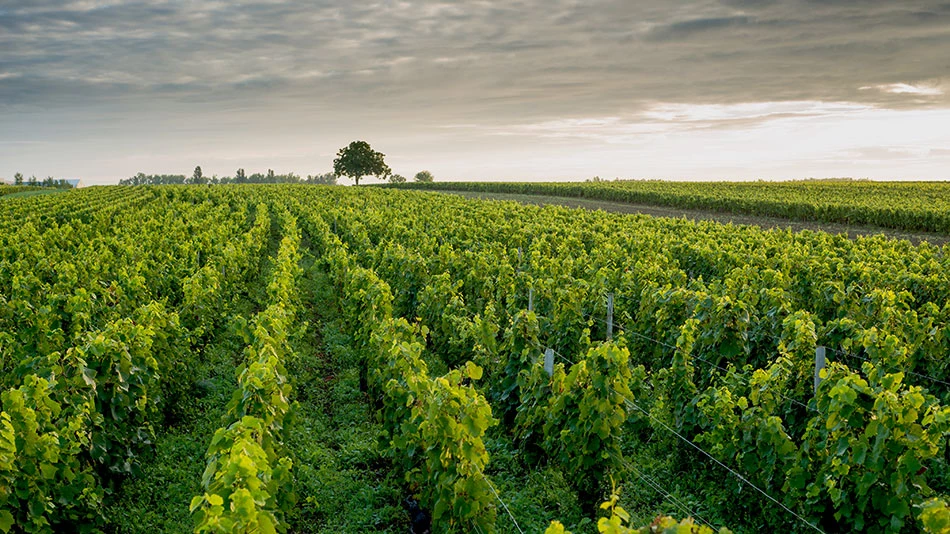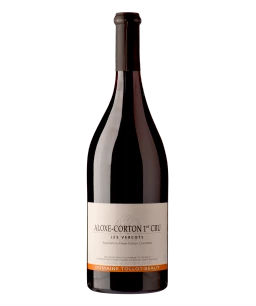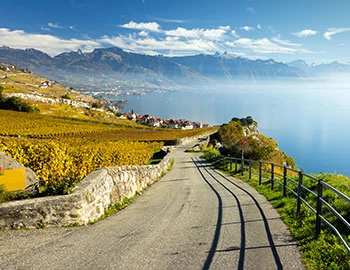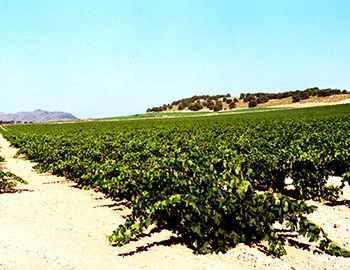Côte de Beaune
Côte de Beaune: guarantor of elegance
The city of Beaune is the cultural and economic centre of Burgundy. The prestigious vineyard sites, stretching in a band from Santenay (located about 20 kilometres south of Beaune) to the village of Aloxe-Corton (five kilometres north of Beaune), form the Côte de Beaune. Legendary, uniquely expressive crus originate here. In fact, the most prestigious Chardonnay growths in the world are produced around Chassagne-Montrachet, Puligny-Montrachet and Meursault.
White wines from Côte de Beaune
Red wines from Côte de Beaune
While the top sites of the Côte de Nuits stretch like a pearl necklace just beneath the escarpment of the central slope, the vineyards of the adjacent Côte de Beaune form a significantly broader band, extending up to two kilometres in width. The climate here is somewhat more balanced. The topography also seems more uniform at first glance. But even more astonishing is the highly individual character that wines from different sites show. The Pinot Noir crus from the adjoining villages of Volnay and Pommard demonstrate this in an absolutely exemplary fashion. While Pinots are produced from calcareous marl in Volnay that are full of finesse and are even almost delicate, those from Pommard, which are produced on limestone, tend more towards the robust, earthy and powerful. Similar terroir differences can be found in many places on the Côte de Beaune.
Chardonnays of world renown
On the Côte de Beaune, vines are generally cultivated at higher sites than on the Côte de Nuits – the highest sites here reach 400 metres, and sometimes more. This is also one reason why the Pinots from the Beaune region turn out slightly more elegant and delicate. The Côte de Beaune also possesses eight grand cru locations. Seven of them are reserved for Chardonnay, including legendary sites like Montrachet, Bâtard-Montrachet and Chevalier Montrachet. No less-known are the sites of Meursault, the best of which are classified as premier crus. The fine, stylistic differences between growths from Montrachet villages and Meursault also electrify the world. While the Chardonnay develops an admirable clarity and liveliness on the limestone soils between Chassagne- and Puligny-Montrachet, the Meursault wines from somewhat heavier soils delight with their creamy mildness.
Wine-metropolis Beaune
The sole red grand cru site in the cultivation area is Corton, located on the hill of the same name just a few kilometres north of Beaune. Here, Pinot vines are rooted in a calcareous “mother-of-pearl” sheet, with an overlay of brown earth. Corton wines are concentrated and characterized by tannin.
It was probably the Romans who founded viticulture in the Beaune region. Their legacy was maintained in subsequent times primarily by the monasteries. By the 18th century at the latest, Beaune was viewed as the wine capital of Burgundy. The yearly wine auctions by the Hospices de Beaune are legendary.












